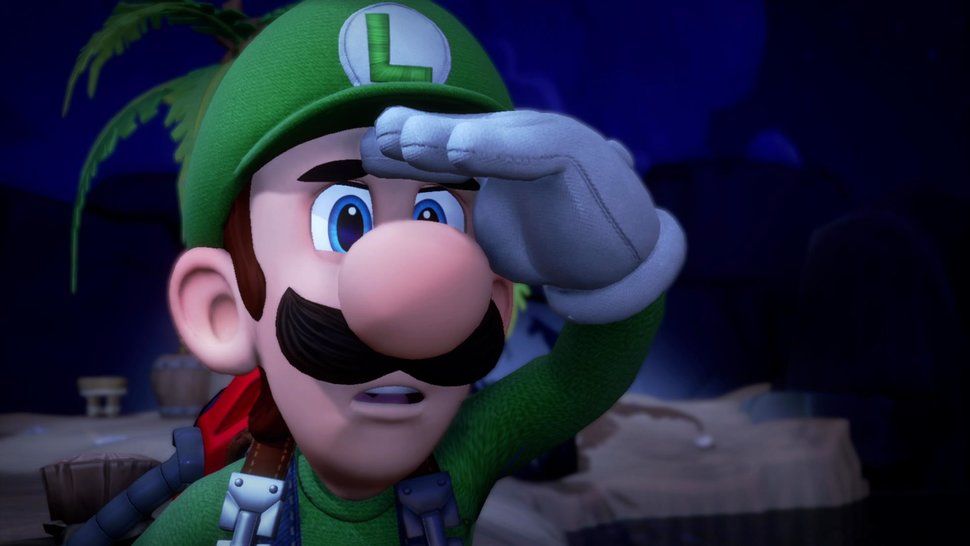Why Everybody Loves Luigi
Mario’s little brother has evolved into a mainstay in recent years, and for good reason

I just finished playing Luigi’s Mansion 3 on the Switch recently and it’s a wonderful game. The way you can interact with almost anything in your environment is unique in the Nintendo canon. The ghosts and haunted house themes are perfect for the Halloween months, or any time you get an itch to play a spooky title.
But let’s be real here. The main reason this series has become a cult favorite amongst fans is because of the spotlight it shines on Mario’s younger brother. Luigi is completely unique, yet all-encompassing of the personality traits we see amongst our family and friends every day. He’s always scared, yet also the bravest person in the room. He fights for who he loves and cares about but also enjoys being the recipient of aid from others.
Luigi feels like he could be a real-life person more than any of Nintendo’s other superstars. His personality is more multi-faceted and carved out than Mario’s, even though he’s the sidekick in the majority of the games he’s in.
I’ve never found someone who doesn’t love Luigi. In a world where seemingly everyone wants to be unhappy about something from their favorite games, shows, and movies, Luigi is never one of those targets for detraction, and here’s why.

Underdog role
Everybody loves the dark horse. Perpetually in Mario’s shadow, Luigi is incredibly relatable to men all over the world who remember being slightly behind their brother in virtually everything.
The fact that he started out as just a color variant of Mario in the original Super Mario Bros. demonstrates his extremely humble origins. He wasn’t even respected enough to be his own character, which is sad to think about.
Thankfully, the infatuation with him only grew when Nintendo gave him his own sprite makeup, with his signature taller height and fluttering jump. He seemed more human than Mario, a character who was constantly learning how to do things as he goes.
Flawed heroes are attractive to us in all mediums of entertainment. What’s the point of indulging in a different world if we can’t see the characters on screen grow and improve like the dynamic beings they are?
Luigi finally got to take full flight in the launch title for the Gamecube, the original Luigi’s Mansion. With an intentionally spooky theme to play off of our favorite protagonist’s paranoia and timidity, the experience is incredibly engaging. It’s like we as players must give Luigi the strength to find his way through the mansion and rescue Mario from the evil Boos.
This relationship of immersion between a fictional character and the person controlling that character is something that isn’t replicated in a lot of other video games. Usually, the fun of playing games is getting to take the reins of an untouchable hero. When the protagonist is flawed though, we get to lay our own blueprint down next to the hero.
Source: YouTube.
Humor
Luigi has rounded into form through the years as a comic relief character with a combination of self-deprecation, awareness of his surroundings, and knowledge of the realistic hurdles that are in front of him.
Oftentimes he really stands out with witty dialogue in the various RPGs set in the Mario universe, either as a playable character in the Mario and Luigi series, or just a notable NPC in Paper Mario.
He gives a good change of pace to the player when compared to the potty-mouth humor of Wario, making it feel like we are laughing with a friend rather than poking fun at him.
Luigi’s sense of humor is something you would find in a Saturday morning cartoon or a feel-good sitcom from the 1980s. It reaches the widest audience because it is appropriate for all ages, it doesn’t exploit just one personality trait, and it changes to match the style of each particular game.
As already mentioned, RPGs are going to be dialogue-heavy, giving way for our green hero to brandish his naiveté, desire to help others, and curiousness about the world in writing. This is very important to forming his style through the years because of the trademark lack of vocal dialogue in the Mario series.
Platformers and adventure games lean on his unbelievable range of facial expressions and gestures. As seen below in Luigi’s Mansion 3, he can go from frightened to overjoyed in a matter of seconds, amusing the gamer and making us enjoy his presence on screen.
Characters rarely react to their surroundings the same way Luigi does throughout the course of a game, and that wide emotional spectrum he displays will always endear him to people like me in ways that others just aren’t able to do.
Potential for more
As I’ve already stated, Luigi has only one series that is solely dedicated to him as the protagonist so far. While it's unfortunate that his presence has not been expanded yet, there hasn’t really been a reason to sway from the Luigi’s Mansion series. These titles encapsulate his character traits perfectly, allowing him to express his flaws and heroic traits simultaneously in the creepy, Halloween-style backdrop of a frightening mansion.
But there’s always so much potential for more. With the lack of Mario RPGs being released in recent years, I suggest Nintendo make a game in this genre starring just Luigi. It gives him a stage for dialogue and humor, and the lack of platforming continues the tradition of helping him escape Mario’s shadow.
Maybe they should give Luigi his own paper-craft game in the style of Paper Mario or Yoshi’s Crafted World. Pairing that unique graphical style with Luigi's personality would fit like a glove.
There’s a lack of Luigi-dedicated content, but a desire and love from the fans. Hopefully, Nintendo will listen to them and produce greatness for the brother in green because everybody loves Luigi!
